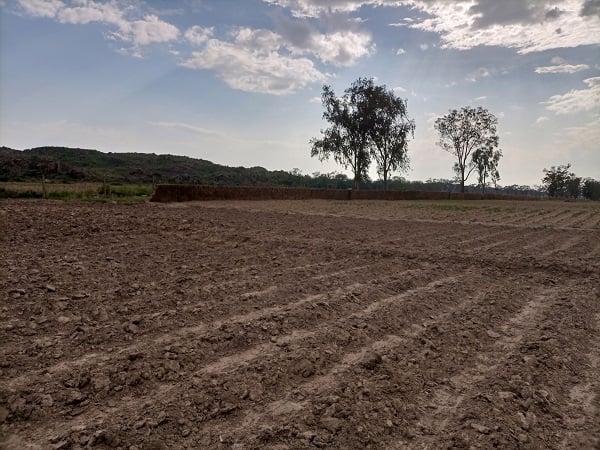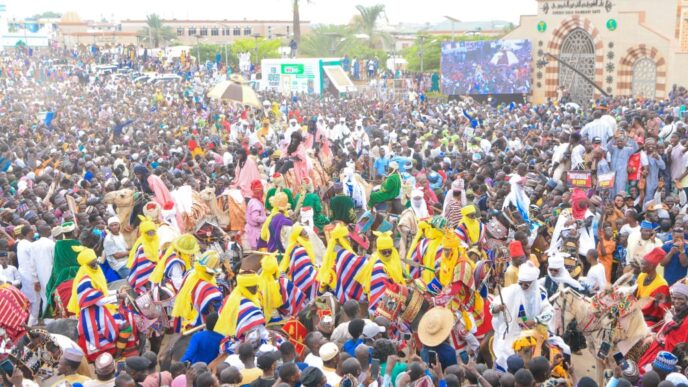BY ODEWALE ABAYOMI
Over 60 percent of Nigeria’s 923,000 square kilometres of land is without formal titles, making it vulnerable to tenure insecurity, expropriation and dead capital. Dead capital discourages investments and hinders economic growth. Strong property rights are the cornerstone of economic development as they create a stable environment that encourages investment and innovation.
The documents required for real estate development in Nigeria cost 27.5 percent more than Ghana and South Africa combined. In Ghana and South Africa, the costs of getting documents required for real estate development are 4.6 percent and 2 percent respectively. Countries with transparent and well-implemented property rights tend to be wealthier than those with deficient property rights. Land markets should be accessible to all, including women and minority groups.
Nigeria’s land-based investment faces challenges like weak administrative support, poor data, cultural values and disproportionate compensation. In a bid to address these challenges, Nigeria launched the State Action on Business Enabling Reforms (SABER) programme, a World Bank-assisted initiative, in 2022 to enhance the business environment across the states, focusing on land management, fibre optic infrastructure regulations, business promotion services, and government business transparency.
Advertisement
The Nigerian government and the Nigerian Governors’ Forum (NGF) are collaborating on the $750 million SABER programme. The $750 million programme, set to run from 2023 to 2025, aims to expedite state-level reforms, and incentivise states to implement critical reforms targeted at land administration efficiency. While all Nigerian states have the potential to attract investment, their current efforts and success in doing so differ greatly.
Despite increased focus by African governments, including Nigeria, on land reform and secure ownership to boost economic growth and agriculture, Nigeria’s complex land registration process remains a hurdle for both foreign and local investors in land-based projects.
Nigeria’s business environment reforms led by the presidential enabling business environment council (PEBEC) have made progress but its ability to attract domestic and foreign investment remains low compared to its peers.
Advertisement
Nigeria’s development is largely tied to its abundant land resources, but these resources are overburdened with accessibility, sustainability, and opportunity issues due to the country’s current land tenure system. Nigeria’s land registration process is characterised by low innovation and inefficiency, with registration taking more days than other countries– a predominant reason why Nigeria ranks 183rd out of 190 countries in the World Bank’s Ease of Doing Business report for property registration, with 12 procedures required, compared to Ghana’s 5 procedures, a pointer to a challenging real estate sector.
Secure property rights are the lifeline of modern economies but the 1978 Nigerian land use decree mandates that all land belongs to the government, who holds it in trust for the public. Nigeria’s land use act, with its 99-year leasehold system and state ownership, reduces absolute ownership rights to occupying and using land. This creates uncertainty for businesses and reduces confidence in investment, job opportunities, and government property taxes.
In agriculture, food security is challenging due to population growth and agricultural land scarcity, exacerbated by high documentation costs, corruption, and long duration, leading to increased property values and unaffordability for the urban poor.
SABER aims to address Nigeria’s property rights system weaknesses due to inconsistent policy regimes hindering land market development.
Advertisement
Some State governments are introducing e-applications for land documentation to improve processes, but the results have not been as promising as expected, particularly in reducing title processing time.
Under Anambra State Business-Enabling Reform Action Plans (BERAP), the Anambra state government is implementing a digitally enabled land administration process to streamline procedures and reduce processing times for land title documents, aiming to achieve land transfer within 7 days. With the processing timeline for land title documents, particularly the Certificate of Occupancy (CofO) being reduced from 6 months to 1 month.
Also, Edo State Governor, Godwin Obaseki has implemented reforms to improve the land management system through EdoGIS, facilitating faster business acquisition and registration, and ensuring a Certificate-of-Occupancy within 30 working days.
Rwanda’s government launched the Land Tenure Regularisation (LTR) programme, a programme similar to SABER due to returning refugees and land conflicts after the 1994 genocide in order to address land ownership issues, including legal recognition and efficient transaction processing. Rwanda’s land reforms achieved remarkable success – prompting their World Bank’s Doing Business Index for ease of property registration to improve significantly. They moved from 61st place in 2012 to 4th place worldwide by 2017. Moreover, the time required for land titling was significantly reduced from 1 month to 3 days. The reforms also coincided with a rise in women’s land ownership. Within that time frame, Rwanda’s poverty rate reduced from 56.7% in 2005/06 to 38.2% in 2016/17.
Advertisement
No doubt, a digital database will boost transparent information on certificates of Occupancy (CofOs) procedures for efficient transactions. The issues of opaque land titling procedures, inefficient land registration systems, and land disputes will significantly reduced. This implies that SABER intervention will improve transparency, reduce corruption, and enhance land registration and dispute resolution processes.
SABER is a valuable tool that will improve Nigeria’s land administration system, but it will be more efficient when land registration costs are affordable. The huge number of unregistered lands will drastically shrink. Apart from making land registration attractive to real estate investors, secured land will also support food security, reduce poverty and promote shared prosperity among Nigerians – irrespective of economic and social status.
Advertisement
ODEWALE Abayomi, a lecturer, public affairs and policy analyst and researcher tweets @ODEWALEAbayomi
Advertisement
Views expressed by contributors are strictly personal and not of TheCable.








